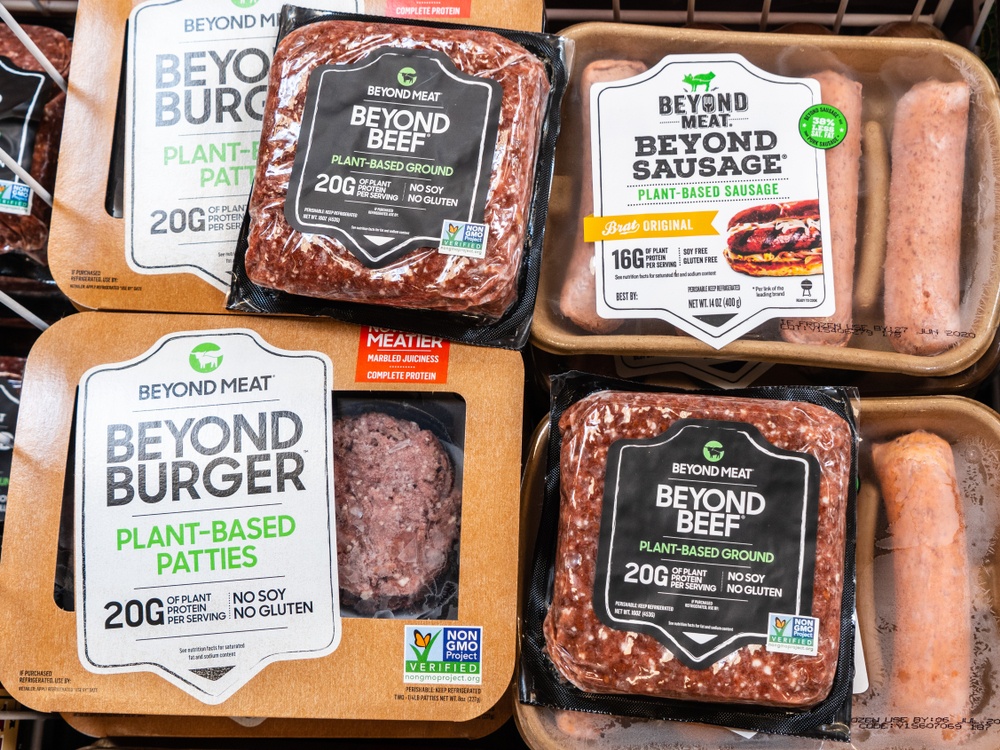Beyond Meat Stock is Beyond Expensive

Beyond Meat (NASDAQ:BYND) has had one of the best-performing IPOs ever. | Source: y Sundry Photography/Shutterstock.com
Plant-based burger company Beyond Meat (NASDAQ:BYND) has delivered incredible returns since its IPO earlier this year. Those who had the foresight to jump on board when Beyond Meat stock made its debut have seen their shares appreciate a shocking 200% in just 5 months.
However, after reaching a peak of $234 at the end of July, BYND stock has been steadily declining. In just the past month, Beyond Meat stock has lost 18%, prompting some to wonder if this could be a good entry point.
Beyond Meat Stock Bulls

BYND stock has a lot to like— the firm’s meatless burgers have seen incredible demand as consumers look for ways to add plant-based proteins to their diets. While more and more people are making the switch to vegetarianism and veganism, studies show that even those who continue to eat meat are also purchasing meat alternatives .
Beyond Meat stock made its way more than 10% higher in late September when McDonald’s (NYSE:MCD) announced that it was planning to trial the burgers at a handful of its Canadian restaurants. If the pilot program is successful, the firm’s vegan burger patties could eventually make their way to McDonald’s’ around the world.
BYND Stock is Over-Hyped
Growing consumer interest in plant-based proteins and the firm’s McDonald’s deal certainly offer a compelling growth story. However, Beyond Meat stock is currently trading at 48 times its sales; to put that into perspective, the S&P 500 average is 2.21 and competitor Tyson Foods (NYSE:TSN) trades at just 0.19 times its sales. BYND stock’s future growth story simply isn’t that compelling.
Plus the firm is facing a host of headwinds that the bulls seem happy to sweep under the carpet. For one, while Beyond Meat has gotten a lot of hype recently, it’s far from being the only meat-substitute out there. The firm is seeing increasing competition from Impossible Foods and big-names like Tyson Foods have their own lines of meat-replacements.

Plus, Beyond Meat is being sued by ex-partner Don Lee Farms , the original manufacturer of the Beyond Burger. Don Lee alleges that despite being in an exclusive supply agreement, Beyond Meat walked away from their contract in 2017 taking the Beyond Burger as well as trade secrets and manufacturing know-how with it. The two are slated to battle it out in the courtroom in May of 2020 , but in the meantime Don Lee has come out with its own veggie burger which has been picked up by Costco (NYSE:COST).
The outcome of that lawsuit could be a game-changer for Beyond Meat stock as its Beyond Burger makes up around 70% of the firm’s total sales.
Supply Chain Issues
Next, there’s the question of whether or not Beyond Meat will be able to keep up with the demand for its products. It may seem like a good problem to have, but if the firm’s supply chain can’t expand to accommodate new demand, it could hurt its retail and restaurant partnerships. Take, for example, BYND’s rollout in Germany’s Lidl supermarkets.
The burgers were in high demand, but as each store only carried a limited number customers were often disappointed when they came in to buy Beyond Burgers. In response, BYND said it was looking to expand its European distribution with a potential production facility in the Netherlands. Unfortunately but the time that comes to fruition it might be too late— Lidl and its competitor Aldi have already come out with copy-cat versions, the Next Level Burger and Wonderburger respectively.
The Bottom Line
Consumer enthusiasm for fake-meat products is a good sign for Beyond Meat stock, but the execution has to be there to make the firm a good investment. BYND needs to prove that it can capitalize on rising demand with an efficient supply chain and diversified product portfolio. A limited deal with McDonalds and consumer buzz simply isn’t enough to justify the firm’s sky-high valuation.